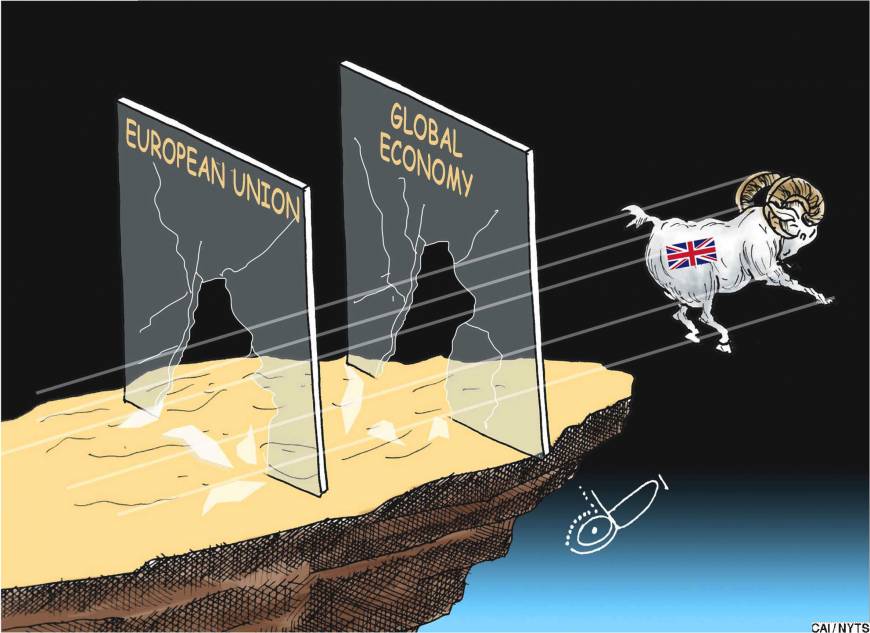Free trade losing its luster

BY JOMO KWAME SUNDARAM
AUG 8, 2016
KUALA, LUMPUR/MOSCOW – In its May 2010 “Global Survey,” McKinsey & Company reported that “the core drivers of globalization are alive and well.” In an April 2014 report, the firm went further, declaring that “to be unconnected is to fall behind.”
But now McKinsey seems to have changed its tune. In a new report, “Poorer Than Their Parents? Flat or Falling Incomes in Advanced Economies,” the McKinsey Global Institute asserts that developed countries should not expect further gains from the process of globalization. Income growth has stalled since the 2008 financial crisis and “even a return to strong GDP growth may not” reverse the trend.
Specifically, McKinsey finds that, from 2005 to 2014, real (inflation-adjusted) incomes remained flat or fell in 65-70 percent of households comprising 540 million people across 25 advanced economies. In the United States during this period, 81 percent of the population experienced flat or falling real incomes; in Italy, 97 percent did. By comparison, from 1993 to 2005, advanced-economy real incomes remained flat or fell in less than 2 percent of households.
Government transfers and tax cuts mitigated some of this trend’s effects by leaving families with additional take-home income, especially in strong welfare states. But even with those measures, up to a quarter of households in some countries experienced stagnant or lower disposable incomes between 2005 and 2014.
The years since 2005 have shown globalization to be a double-edged sword, and even conservative politicians worldwide have stopped cheerleading for it....
More at http://www.japantimes.co.jp/opinion/2016/08/08/commentary/world-commentary/free-trade-losing-luster/#.V6jcR2Vh2Rs
T_i_B
(14,737 posts)People want cheap, affordable goods, but they don't consider what goes into that.
Similar story with manufacturing. People say they want more of it, but fail to understand how increasing barriers to trade screws over manufacturing businesses by denying them access to overseas markets.
kristopher
(29,798 posts)The benefits are pretty obvious; the drawbacks are what decision-makers have trouble recognizing.
ETA: http://www.democraticunderground.com/1016165071
T_i_B
(14,737 posts)There's endless debate on both left and right about the supposed drawbacks of free trade, but establishment politicans have very much taken it for granted for many years.
People demand affordable goods, but don't think about the (deeply boring) details required to make goods affordable. People might say they want goods made in their own nation when asked by pollsters, but they won't follow through on that in the shops when confronted by the alternatives.
If there is one thing the disasterous EU referendum in this country has taught us, it's that people don't understand the benefits of free trade at all.
kristopher
(29,798 posts)Specifically, McKinsey finds that, from 2005 to 2014, real (inflation-adjusted) incomes remained flat or fell in 65-70 percent of households comprising 540 million people across 25 advanced economies. In the United States during this period, 81 percent of the population experienced flat or falling real incomes; in Italy, 97 percent did. By comparison, from 1993 to 2005, advanced-economy real incomes remained flat or fell in less than 2 percent of households.
http://www.democraticunderground.com/1016164975